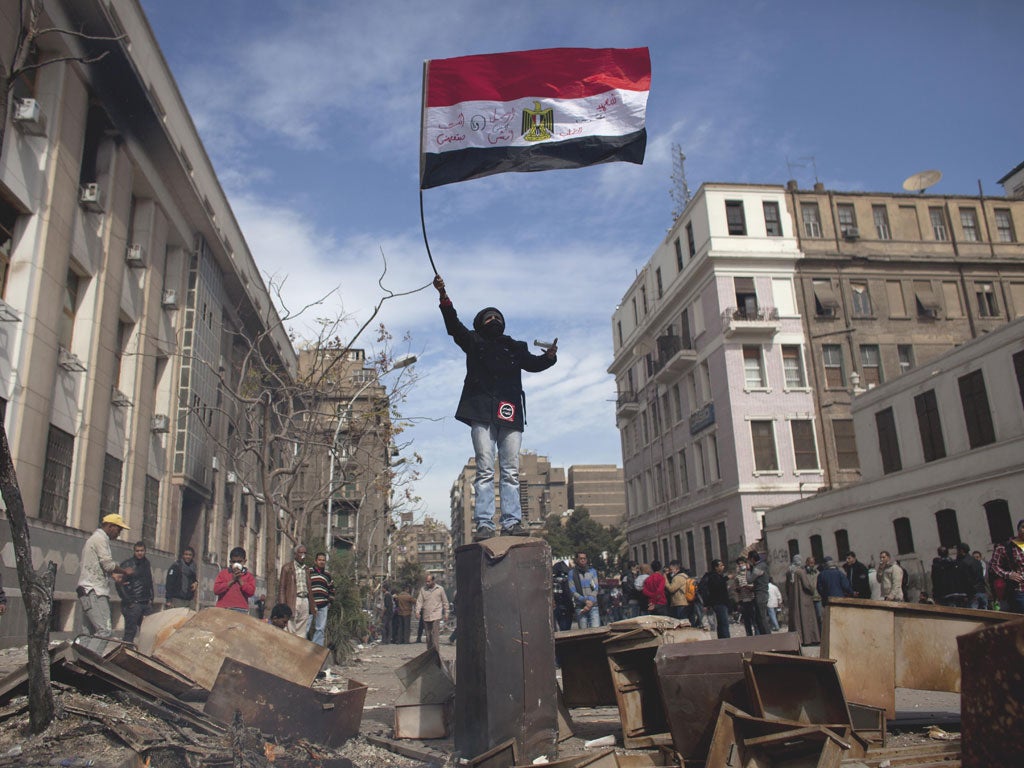Rising crime, unemployment and poverty threatens Egypt's future

It is a gun battle people in the Shubra district in central Cairo still talk about six months after it happened. In a dispute over a piece of land he had seized amid the small shops and densely crowded streets, Mohammed Shaban, who had escaped from prison during the revolution, challenged the police to a fight.
He told one policeman who tried to evict him "to get out or we will kill you". When other police arrived, two of them were wounded and Shaban was killed.
"Mohammed Shaban's family consider him a martyr but nobody else around here does," says Abu Hatem, a taxi driver living in Shubra. Not far away is the prison and police headquarters which was burned on 28 January last year by prisoners like Shaban and their relatives at the height of the Egyptian uprising against President Hosni Mubarak. The police fled from Shubra, but have since returned to the district and reopened their old headquarters.
The story of the death of Shaban is one of several told by people in Shubra as an example of increased violence in Egypt since the revolution.
Yet these tales of Egypt sinking into chaos are deceptive. There is more crime in Cairo than before the revolution because the police, discredited by their corruption and brutality, can no longer act with impunity and often refuse to act at all. Poverty has increased in a city of 20 million people, a third of whom already lived in slums, so more will steal to survive.
The increased fear of violence is in part psychological because Egyptian society is not used to it, says Magda Kandil, executive director of the Egyptian Centre for Economic Studies (ECES), and while there is more crime, "it is mostly about theft – 20,000 cars have been stolen".
Compared to most Arab uprisings last year, such as those in Libya, Yemen and Syria, political violence in Egypt has been moderate. "Looked at historically this has been a remarkably peaceful revolution so far," says Professor Khaled Fahmy, of the history department at the American University in Cairo. "There has been no bloodbath."
In the longer term, it may prove impossible for the army and police to restore the monopoly of power they enjoyed under the old regime. The Interior Ministry in Cairo used to vet the promotion of everybody.
But Cairo today is full of signs that this culture of subjugation is eroding.
The activists who packed Tahrir Square a year ago are dispirited and speak of the triumph of the counter-revolution. But power in post-Mubarak Egypt is divided and may become more so.
Education and health care are inadequate and under-funded. A quarter of Egypt's 85 million people live in shanty towns. One-third of the government's budget is spent on subsidies, mostly for fuel which benefit the better-off.
The authority of the Egyptian military and police will ebb unless they stage a coup, which appears unlikely. But, even if they are edged out of power, it will take a long time to reconstruct the country they ruined during their 60-year-long rule.
Join our commenting forum
Join thought-provoking conversations, follow other Independent readers and see their replies
Comments
Bookmark popover
Removed from bookmarks